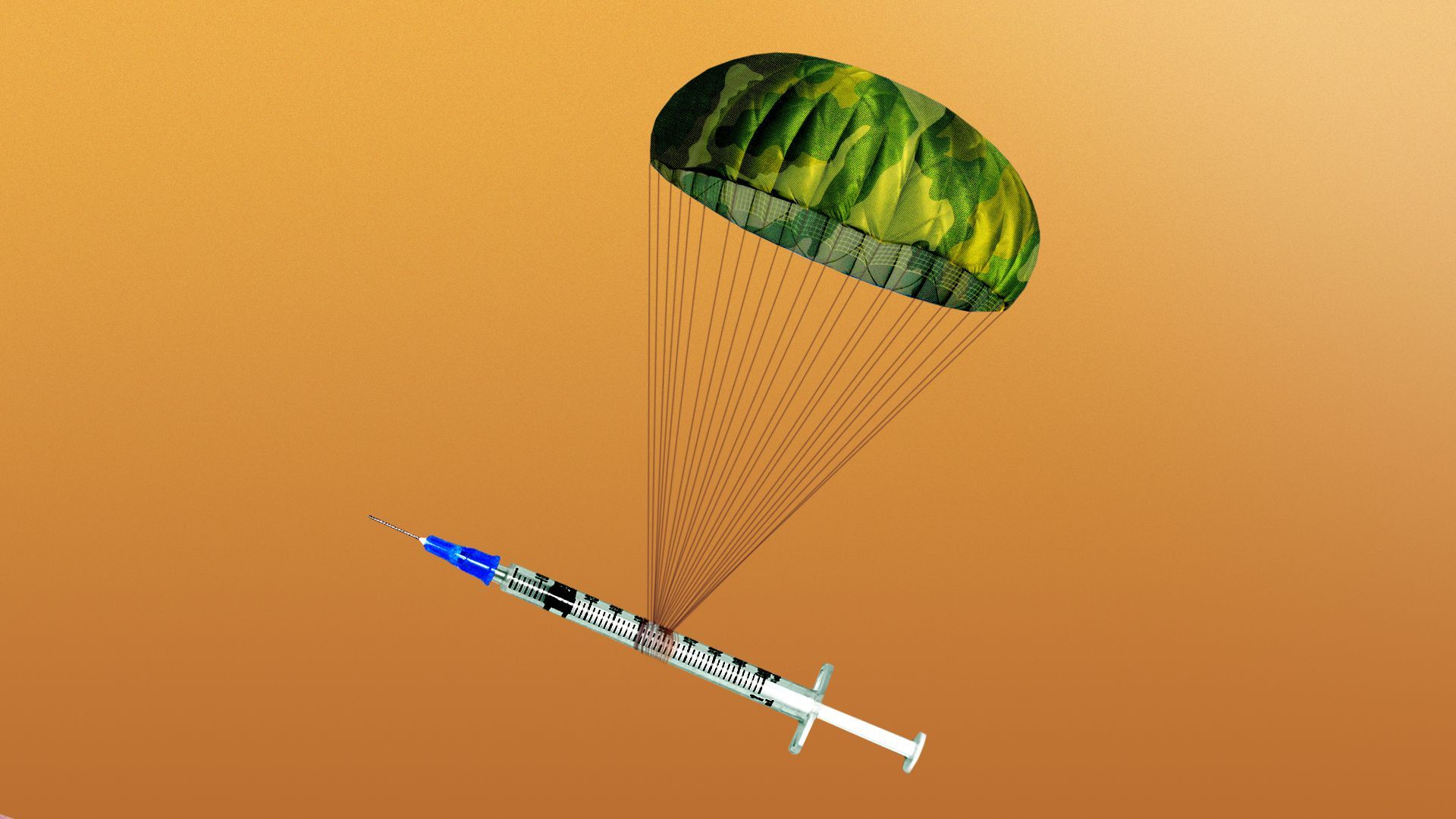Exclusive: U.S. will speed COVID vaccines to conflict zones
Add Axios as your preferred source to
see more of our stories on Google.

Illustration: Annelise Capossela/Axios
The Biden administration is set to announce today that it has brokered a deal to get more doses of the Johnson & Johnson COVID vaccine into conflict zones around the world, a senior White House official tells Axios.
Why it matters: Getting the rest of the world vaccinated will save lives — and reduce the chances of more new variants.
How it works: J&J doses could previously only be used for official government vaccination programs due to liability concerns, a senior White House official said.
- "The way vaccine manufacturers sell or give doses to countries ... is the recipient government essentially accepts legal liability for the doses. That's just the system we've developed," the official said.
- But in many humanitarian settings and conflict zones, there's no government entity to administer the doses and accept that liability.
- The U.S., J&J, and the global COVAX initiative built a "novel legal approach" in which J&J agreed to waive the legal liability it normally requires from a country for donated doses.
- J&J is essentially saying, "we're going to let an NGO give them to people who are most vulnerable because the situation demands it," the official said. They said they expect it could be a model for donations from other vaccine makers.
As part of the deal, the U.S. government will also donate 1.5 million doses of extra domestic supply of J&J shots to COVAX for flexible use in people in conflict zones or other humanitarian settings, such as for migrants or asylum seekers, or where the need is the greatest.
- Secretary of State Tony Blinken is expected to announce the deal as part of a virtual meeting with foreign ministers today.
- He will also announce that the U.S facilitated a deal to make an additional 300,000 doses of J&J available for humanitarian, UN peacekeeping, and other frontline workers around the world.
The big picture: Administration officials declined to specify where doses would be allocated.
- But a report commissioned earlier this year by the Unit for the Protection of Civilians at the International Committee of the Red Cross pointed to examples of conflict zones that couldn't get vaccines, including Iraq, the Philippines, Nigeria, Yemen, the Central African Republic, Colombia, Greece and Azerbaijan.
What they're saying: "From the beginning of the pandemic, our Company has recognized that no one is safe until everyone is safe and has worked to develop and deliver a vaccine that can protect people everywhere. This includes ensuring that people in conflict zones or other humanitarian settings can access COVID-19 vaccines, even if they live beyond the reach of traditional, state-run vaccination campaigns," a Johnson & Johnson spokesman said in a statement sent to Axios.
Editor's note: This story has been updated with a statement from Johnson & Johnson. It has also been updated to specify J&J's COVID-19 shots to COVAX would be for flexible use in people in conflict zones or other humanitarian settings, such as for migrants or asylum seekers, or where the need is the greatest.
